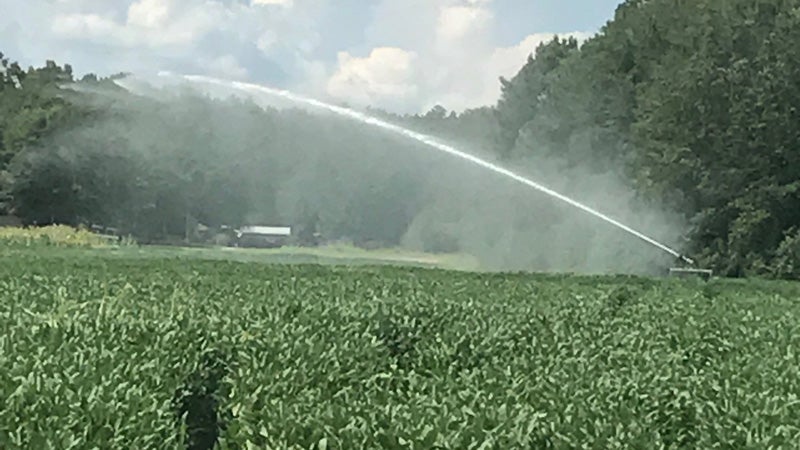Farmers unfazed by low soybean prices as harvest begins
Published 4:17 pm Friday, September 14, 2018

- Smith Farms in Wilsonville will harvest about 700 acres of soybeans, but they could be worth far less than usual because of a trade war between the United States and China. (CONTRIBUTED)
A falling price of soybeans following an escalating trade war between the United States and China could cost local farmers tens of thousands of dollars, but they remain hopeful as the harvest season begins.
John DeLoach and Donnie Smith are possibly Shelby County’s only two soybean farmers, but their operations look very different.
Smith Farms off Shelby County 30 in Wilsonville comprises about 500 acres, and Smith has been farming for about six years.
DeLoach Farms near the St. Clair County line, meanwhile, has about 1,000 acres and has been in the family since 1820.
Yet the two farmers were alike in thinking a lower price of soybeans is temporary and tolerable as part of President Donald Trump’s economic policy.
“I support doing what we need to do to get trade fair across the world. I think it needs to be done,” Smith said about Trump enacting tariffs on Chinese goods as punishment for what are viewed as unfair trade practices. China has responded in kind with tariffs on American goods, including soybeans.
Smith said he has planted all soybean plants on land in previous years but this year cut back to about 200 acres of soybeans and 300 acres of cotton because of speculation about the price of soybeans in relation to the trade war.
Smith Farms was started by Donnie Smith’s parents, who used the land to raise quarterhorses and cattle.
“I went 100 percent the opposite direction,” Smith said about his decision to plant crops in what began as a hobby but has become a significant part of his income.
But the price of soybeans could cost him a chunk of money when he looks to sell about 12,000 bushels.
DeLoach expects to sell between 25,000 and 35,000 bushels.
The price of soybeans was $8.32 per bushel on Friday, Sept. 14, well below projections of $10-$11.
“This is about as low as I’ve seen it,” Smith said but added that he is hopeful the price will go back up. “I think the world has to use soy products. If you take the United States out, the highest tariff market is China. Those beans have to go somewhere because they’re taking someone else’s supply.”
DeLoach and Smith said they usually sell their soybeans to Cargill, a leading international purchaser with a mill in Guntersville. They are used to produce oil and other products such as chicken feed.
The farmers said they have some storage capacity, which gives them the option of trying to hold out on selling until the price goes back up, but that means a delay in income needed to pay the bills.
DeLoach planted 700 acres of soybeans—“way more than usual,” he said.
When the decision was made, soybeans made better economic sense, but that was before the price fell.
Still, DeLoach said farmers are accustomed to fluctuating markets whether the cause is tariffs, weather or other factors.
“This is not doom and gloom,” DeLoach said. “We’re used to stuff like this. A drought could be worse. For farmers, the two most important factors are weather and the global economy, and we can control neither one of them. You get used to fighting those battles.”
“I have the utmost confidence this will get straightened out. At the end of the day, China is going to have to have our beans.”









